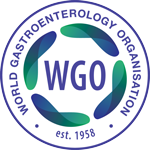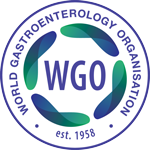Challenges of Implementing Fecal Microbiota Transplantation
Vol. 27, Issue 3 (September 2022)
 |
Georgiana Gîlcă-Blanariu, MD, PhD
Assistant Professor, Grigore T Popa University of Medicine and Pharmacy
Sf Spiridon County Clinical Emergency Hospital
Iasi, Romania
|
 |
|
Sahil Khanna, M.B.B.S., M.S.
Gastroenterology and Hepatology, Mayo Clinic
Rochester, Minnesota, United States
|
|
1. Introduction
Fecal microbiota transplantation has been established as a treatment option for recurrent Clostridioides difficile infection (CDI)1 and has been showing promising results for other pathologies as well.2 However, there are still several technical and economic aspects regarding FMT that raise difficulties in implementation, partly related to regulatory restrains and partly related to the elaborate process of donor screening and stool banking implementation.
2. Variations in legal framing
There is currently no universally accepted legal framing for FMT, which is understandable, as the exact microbial composition and corresponding metabolic profile of products used for microbiome restoration by FMT are not consistent. A large spectrum of regulatory statuses for FMT can be noticed in various regions, ranging from lacking specific regulation to strict framing.3
At the emergence of FMT as therapy for recurrent CDI, the US Food and Drug Administration (FDA) suggested that microbiota derived from feces meets the required criteria for being framed both a drug and a biological product and, therefore, warrants regulation for FMT as a drug and required the use of an investigational new drug application to perform FMT.4 This initial framing raised several issues, especially related to limiting patients’ access to FMT on one hand and leading to the potential for a do-it-yourself approach for FMT, posing significant safety concerns.5 Consequently, the FDA revised its decision and has suggested an enforcement discretion for clinicians to use FMT for managing patients with recurrent C. difficile infection not responding to standard therapies.6 Since then, additional draft guidance have been issued but not yet finalized.
In addition to the USA, countries such as the UK and France also regulate FMT as a medicinal product.7 In the UK, framing FMT as a medicinal product led to s compliance with good manufacturing practice (GMP) standards regarding the FMT production service and to involve the Medicines and Healthcare products Regulatory Agency (MHRA) as a regulating authority for accreditation and quality control. All FMT services within the UK are licensed by the MHRA. Moreover, the MHRA traced specific proportion for the FMT regulation, depending on various factors, including production scale, differentiating between clinical setting, with prescription on a named patient basis, larger scale production and clinical trial use.8
Considering that the FMT product combines the presence of both human cells and non-human components (eg, microbial genes), in 2012, the Competent Authorities on Substances of Human Origin Expert Group of the European Union debated the matter and concluded that fecal transplantation is not covered by the European Human Tissue Directive 2004/23/EC .9 The debate was resumed in 2014, when the European Commission concluded that fecal microbiota transplantation is not covered by Directive 2004/23/EC, based on the fact that the human cellular components of the FMT product are not the active one for the therapeutic effect, leaving each Member State the autonomy in regulating FMT on a national level.10 Moreover, all the following European Consensus on stool banking stated that stool banking should undergo appropriate approval from the relevant national regulatory authorities of each country.11
3. Donor recruitment process and traceability of the sample from donor to recipient
Like any donation process, stool donation for FMT must also be voluntary, with donors being informed regarding the benefits and potential risks and offering a proper written informed consent. A thorough organization of the donor screening process is essential for an appropriate recruitment process. This should include an extensive questionnaire including key issues (such as disease history, intake of drugs altering the microbiota), aiming to minimize the risk of yielding transmission of infectious agents or unfavorable microbiota characteristics with the FMT administration. The next step in the donor screening process is represented by an extensive blood and stool testing, to exclude transmittable diseases, as indicated by several currently available guidelines.8, 11, 12
There is increasing concern directed towards the traceability of samples from donors to recipient, with recommendations expanding the time to keep the records for FMT from at least ten years with the prior European consensus in 201911, to the latest European Consensus regarding stool banking, recommending a further extended period for keeping all data necessary to map the donation process for a minimum of 30 years. Records should not only include traceability information, but also current recommendations support keeping a frozen aliquot of each stool donation for future testing in the case of AEs, in keeping with regulatory guidance.13
In spite of all progress towards standardizing the donor screening and optimizing FMT, there are still several aspects to be optimized. The setting of stool banking may raise several ethical issues, considering that the donor should be available to donate on several occasions over time, with repeating the screening tests at 8–12 weeks interval and applying a short questionnaire on the day of the donation to check for any recent-onset potential detrimental events .13 One aspect to be considered is the frequent collection of private information, but also the imposition of restrictions on donating, based on personal behavior (related to travel history, medication use) and requirement to submit to a significant amount of personal surveillance data. Consequently, ethical concerns include protecting the privacy of stool donors, together with limiting the perception of autonomy restriction and preventing a sense of obligation.14
4. Potential safety concerns and COVID-19 pandemic shift
Several safety concerns with FMT have been raised both through FDA alerts for potential transmission of multi-drug resistant organism Food and Drug Administration15, and during the COVID-19 pandemic, considering the evidence of potential digestive transmission of SARS CoV-2. Another current challenge is overcoming the paucity of donors in general and reaching suitable donors in particular. Studies have reported that donors have `declined inclusion in the screening process, due to donation requirements, such as frequency and duration of donations.16 Moreover, a significant percentage of donors is excluded after the completion of the extensive questionnaire, reported around 50% in one Australian study and even raising up to over 90% following the clinical evaluation reported by the US OpenBiome stool bank.17 This aspect is of even higher concern, taking into account that these data are prior to COVID-19 pandemic, which raised further issues regarding FMT safety considering the potential fecal-oral transmission of SARS CoV-2 [18].18 This lead to expanding the screening process with including SARS CoV-2 transmission- related questions within the screening questionnaire and also SARS CoV-2 testing during the screening process. There is already encouraging data for successful FMT with donors sampled during the pandemic, without any SARS CoV-2 transmission, provided that the safety measures, including targeted questionnaire and SARS CoV-2 testing are applied within the screening process.19 Furthermore, there is promising data for developing standardized RT-PCR stool testing in the faecal donor samples,20 contributing the improving potential donor screening and therefore increasing safety of the procedure.
5. Conclusions
Implementing FMT can be challenging, considering the need for expertise and costs. However, the need for a clear establishment of regulatory context of FMT and the resources required to develop stool banking are needed in order to maximize safety and accessibility of the procedure.
References
1. McDonald LC, Gerding DN, Johnson S, et al. Clinical practice guidelines for Clostridium difficile infection in adults and children: 2017 update by the Infectious diseases Society of America (IDSA) and Society for healthcare epidemiology of America (SHEA). Clin Infect Dis 2018; 66:987–94.
2. Ooijevaar RE, Terveer EM, Verspaget HW, etal. Clinical application and potential of fecal microbiota transplantation. Annu Rev Med 2019; 70:335–51.
3. Verbeke , Janssens Y, Wynendaele E, De Spiegelee B, et al. Faecal microbiota transplantation: a regulatory hurdle? BMC Gastroenterology 2017; 17:128.
4. Food & Drug Administration, Fecal Microbiota for Transplantation: Scientific and Regulatory Issues 309, May 2, 2013, http://www.fda.gov/downloads/BiologicsBloodVaccines/NewsEvents/WorkshopsMeetings Conferences/UCM352903.pdf
5. Sachs R, Edelstein C. Ensuring the safe and effective FDA regulation of fecal microbiota transplantation. J Law Biosci 2015; 396–415.
6. Guidance for industry: enforcement policy regarding investigational new drug requirements for use of fecal microbiota for transplantation to treat Clostridium difficile Infection not responsive to standard therapies; availability, 78 Fed. Reg. 42,965, 42,965 (July 18, 2013).
7. Cammarota G, Gallo A, Ianiro G, et al. Emerging drugs for the treatment of Clostridium difficile. Expert Opin Emerg Drugs 2019; 24:17–28.
8. Mullish BH, Quraishi MN, Segal JP, et alThe use of faecal microbiota transplant as treatment for recurrent or refractory Clostridium difficile infection and other potential indications: joint British Society of Gastroenterology (BSG) and Healthcare Infection Society (HIS) guidelines. Gut 2018; 67:1920-1941.Suppl Material 3.
9. Directive 2004/23/EC of the European Parliament and of the Council of 31 March 2004 on setting standards of quality and safety for the donation, procurement, testing, processing, preservation, storage and distribution of human tissues and cells. Official Journal of the European Union, L 102/48.
10. Competent authorities on substances of human origin expert group (CASoHO E01718) meeting of the competent authorities for tissues and cells 3-4 December 2014 Summary Report 2014.
11. Cammarota G, et al. International consensus conference on stool banking for faecal microbiota transplantation in clinical practice. Gut 2019; 68:2111–2121.
12. Gilca-Blanariu GE, Stefanescu G, Girleanu I, et al. Romanian national guideline on translating fecal microbiota transplantation applications related to Clostridioides difficile infection into the local clinical practice. J Gastrointestin Liver Dis 2021; 30(1):147-163.
13. Keller JJ, Ooijevaar RE, Hvas CL, et al. A standardised model for stool banking for faecal microbiota transplantation: A consensus report from a multidisciplinary UEG working group. United European Gastroenterol J 2021; 9:229–247.
14. Mikail M, O'Doherty KC, Poutanen SM, Hota SS. Ethical implications of recruiting universal stool donors for faecal microbiota transplantation. Lancet Infect Dis 2020; 20(3):e44-e49.
15. Important Safety Alert Regarding Use of Fecal Microbiota for Transplantation and Risk of Serious Adverse Reactions Due to Transmission of Multi-Drug Resistant Organisms. Available at: https://www.fda.gov/vaccines-blood-biologics/safetyavailability-biologics/important-safety-alert-regarding-use-fecalmicrobiota-transplantation-and-risk-serious-adverse
16. Paramsothy S, Borody TJ, Lin E, Finlayson S, Walsh AJ, Samuel D, van den Bogaerde J, Leong RW, Connor S, Ng W, Mitchell HM, Kaakoush N, Kamm MA. Donor Recruitment for Fecal Microbiota Transplantation. Inflamm Bowel Dis 2015; 21(7):1600-6.
17. Kassam Z, Dubois NE, Ling K, et al. 512 – donor health screening for fecal microbiota transplantation: prospective evaluation of 15,317 candidate donors. Gastroenterology 2019; 156:S-100–S-101.
18. Guo, M., Tao, W., Flavell, R.A. et al. Potential intestinal infection and faecal–oral transmission of SARS-CoV-2. Nat Rev Gastroenterol Hepatol 2021; 18, 269–283.
19. Khanna S, Tande A, Rubin DT, Khoruts A, Kahn SA, Pardi DS. Fecal microbiota transplantation for recurrent c difficile infection during the COVID-19 pandemic: experience and recommendations. Mayo Clin Proc 2021; 96(6):1418-1425.
20. Manzoor SE, Zaman S, Whalley C, Inglis D, Bosworth A, Kidd M, Shabir S, Quraishi N, Green CA, Iqbal T, Beggs AD. Multi-modality detection of SARS-CoV-2 in faecal donor samples for transplantation and in asymptomatic emergency surgical admissions. F1000 Res 2021; 11; 10:373.



